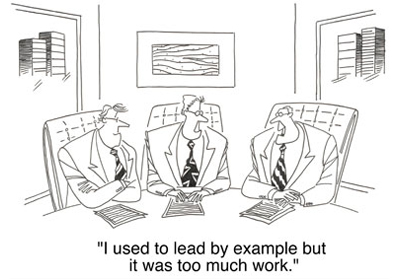Following on from our post last week on authentic leadership, here’s a great guest blog by Brian Bacon from Brian Bacon on Leadership:
Anne Frank chronicled in her diary in 1943, “The good news is that you really don’t know how great you can be, how much you can love, what you can accomplish, and what your potential is!” Great leaders are on to this.
They know the potential for high performance exists within their colleagues and coworkers and consider it their duty to bring it out of them. Great leaders understand the limits and constraints of their people, but also know that a general goes to war with the troops he’s got, not those he’d like to have. The mark of a great leader is the ability to get ordinary people to stretch beyond their existing limits and capacities to do things they ordinarily couldn’t do.
Weak leaders see colleagues, co-workers and often themselves, through a veil of pollution. They don’t see the real person at all, just a cloud of negative memories and impressions based on past failures and false assumptions. The truth is that the capacity of a person is usually far greater than that which is immediately obvious. The ability to tap this potential is often impaired by an inability to see beyond the pollution that is clouding the leader’s vision.
Pollution can exist in many forms. We are aware of the need to reduce exposure to toxins contained in the air, food and water which destroy our physical system, but are we equally conscious of the need to eliminate the toxic thoughts that limit our vision, destroy our happiness and disturb our mental well being? A daily diet of thoughts polluted by fear and resentment creates patterns of negativity that result in cancerous relationships, acute anxiety and systemic sadness. Whereas we can’t often control negative situations in our work and relationships, we do have the ability to control our mental response to these situations.
That’s why ‘leading yourself’ is the sine qua non of authentic leadership development. Before you can lead a team, steer an organisation or change a culture, you must be able to manage your thoughts, feelings and emotions. This ‘mental cleansing’ which, historically, was a discipline practised by Zen masters and warrior monks, is today being practised by those on the path of authentic leadership. It enables you to see beyond the obvious and engage with the possible, firstly within yourself, and then with others. With a daily practice of ‘mental cleansing’ as the basis of your leadership of others, you will be able to focus on a person’s real potential beyond the gossip, innuendo, fear, flattery and self-interested agenda of other people. That’s how great leaders face challenges beyond their capacity, and build great teams and outstanding organisations.
© Brian Bacon
What do you think – do you agree with Brian? Comment below and join the debate…
